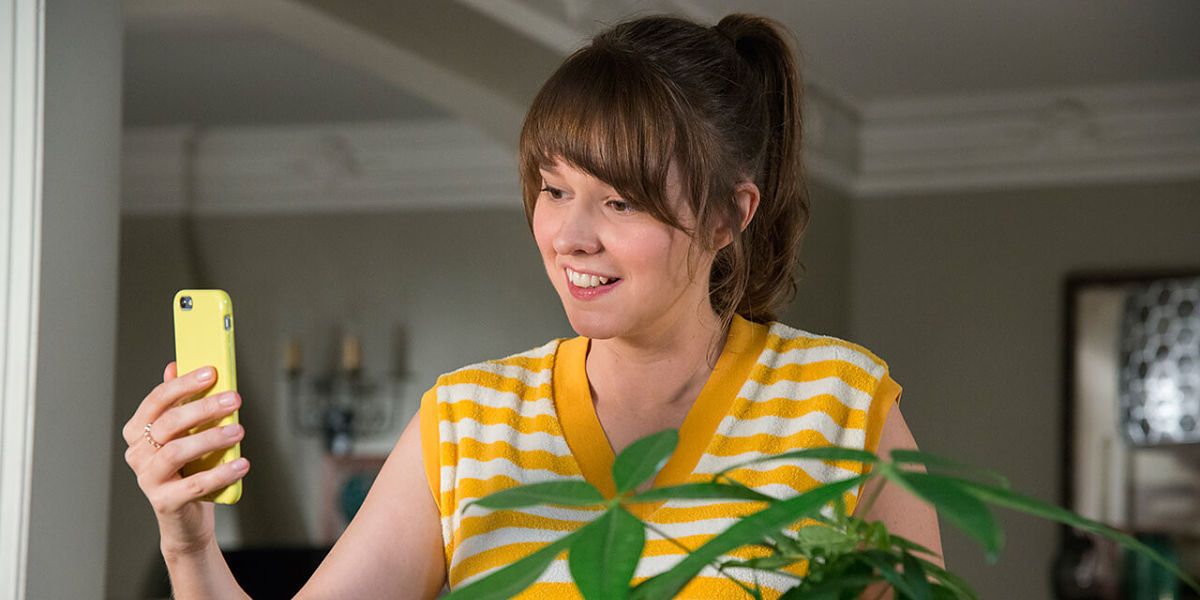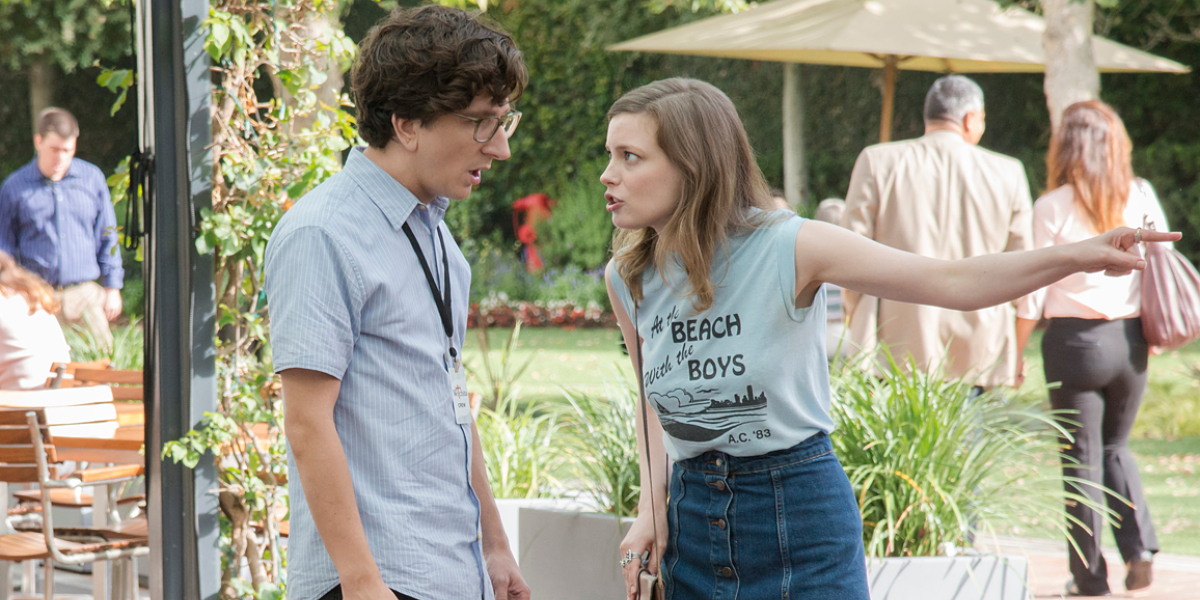[This is a review of Love season 1. There will be SPOILERS.]
-
Anyone who has seen a Hollywood romantic comedy knows the plot beats they often follow. First, there's the chance meeting between the two very different and seemingly incompatible lead characters, who usually don't give off the best first impressions to one another. Then, after circumstances force them to spend time with one another, they discover each other's best qualities and begin to fall in love. And finally, after overcoming a difficult last obstacle, they end up together, happily ever after.
Of course, we know this isn't how things usually play out in real life, so it's refreshing to see a show like the new Netflix comedy Love navigate the well-traveled narrative terrain that is modern dating and courtship with a more realistic take. Not only does the series devote a healthy amount of time to develop its main characters as well-rounded human beings (as we noted in our review of the show's first episode), but it presents their journey together through an unfiltered lens, lending the final product a welcome authentic quality.
As previously mentioned, that authenticity first comes from the relatable lead characters of Mickey (Gillian Jacobs) and Gus (Paul Rust). Their ordinary appearances (even the gorgeous Jacobs is often dressed down) certainly make them approachable to most audiences, but it's really their personality flaws and the dynamic with one another that make them endearing to those of us who don't see ourselves as perfect human specimens. Mickey is impulsive and sometimes hostile, while Gus is somewhat naïve and someone who has been accused of being "fake nice". Refreshingly, they are presented as neither good nor bad -- just regular people trying to make it in the real world.
And fortunately, that well-roundedness and complicated ambiguity also applies (though, to a lesser degree) to many of Love's supporting characters, including Mickey's boss Dr. Greg (Brett Gelman) and her roommate Bertie (Claudia O'Doherty). At first glance, these characters might seem like the one-note personality types you would see on most network sitcoms -- with Dr. Greg being the manipulative, overbearing boss and Bertie being the ever-optimistic nice girl. However, Love allows them both to display other shades -- as Dr. Greg's advances toward Mickey turn out not to be a power play, and Bertie stands up for herself when she realizes Gus is tanking their date, and again when Mickey mistreats her.
And further aiding the series' realism is its even-handed approach to character perspective. While most romantic comedies or sitcoms focus on just the male or female point of view, Love devotes equal time in examining and exploring both Mickey and Gus' side of the relationship. This approach helps the audience to see that neither one is completely to blame for the epic fight they have in episode 9, 'The Table Read.' Here, each character sees the other as being in the relationship for selfish reasons -- as Gus fears Mickey is only with him to break her streak of dating jerks, while Mickey thinks Gus is simply trying a "bad girl" on for size to make his own boring life a little more adventurous. Of course, the truth is that both characters actually like each other, but their own insecurities and ugly past relationship experiences lead them to believe the other person's intentions are not as pure as their own.
The series not only does a terrific job at letting the audience know where both Mickey and Gus are coming from, but it also is able to inform the dynamic of their relationship based on the baggage each of them is bringing with them. And unlike what we sometimes see on other shows, changing bad habits is not as easy as making the realization and flipping the switch. In Love, we see Mickey in a constant struggle with her addictions and impulsive ways, and Gus continue to shoot himself in the foot at work -- often because his foot ends up in his mouth. These are realistically common character flaws, and they are also ones that take a lot of time and effort to correct. So, even though we see Mickey and Gus back together as the season finale fades to black, we know that they can't really live happily ever after until they work out their own personal issues.
But perhaps even more interesting and admirable is the show's self-awareness when it comes to the seemingly unattainable and unrealistic love-conquers-all ending its main characters are blindly striving towards. Mickey, Gus, and really the rest of Love's characters seem to realize typical Hollywood romances are fantasies -- a notion that couldn't have been demonstrated or embodied any more perfectly than when a frustrated Gus literally throws his collection of Hollywood rom-coms out of a moving car.
While there's certainly some merit to fairy-tale escapism in romantic stories, viewers won't find it in Love's first 10 episodes. However, for viewers (and couples) who are looking for more realistic depictions of relationships with a good sense of humor, Love will be a treat -- especially for binge-watchers, as each episode leads directly into the next.
-
All of Love season 1 is currently available to stream on Netflix. Let us know what you thought of Love season 1 in the comments.



